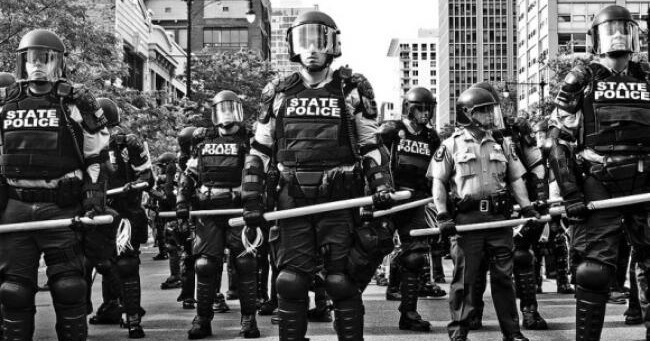Kerby Anderson
In a recent column, Dennis Prager argues that we are seeing a dress rehearsal for a police state. Although I think he makes a convincing case, I am intrigued by people’s response to it. Some people see it, while others do not. It is like watching people look at an optical illusion. Some people see it; others do not.
Prager argues that our country is closer to a police state than ever before. And he hastens to add that “police state” doesn’t mean “totalitarian state.” We still have freedoms, as evidenced by the fact that he could write his column. But he says there are four hallmarks of a police state.
First are “draconian laws depriving citizens of elementary civil rights.” Over the last few weeks, I cannot even count the number of times I have talked about “draconian policies” or “extreme policies” issued by governors, mayors, and judges. Americans have been banned from going to work, meeting in groups, and going to beaches and parks.
Second, is a “mass media supportive of the state’s messaging and deprivation of rights.” We see that in the harsh reaction to asking questions about the value of certain policies and the decision by Big Tech to remove posts considered “misinformation.”
Third, is the use of police. We have seen people being handcuffed for playing ball with their children in a park or beach. We have seen people being fined for sitting on the beach or listening to a sermon in their parked cars with the windows rolled up.
Fourth, is the presence of snitches. One governor even set up a snitch line so you could turn in your fellow citizens.
As I said, many see these as police state tactics. Others, however, respond that these are merely temporary and pose no threat to our liberty. That may be true, but it is shocking how willing Americans have been to conform to what might not even have been allowed a few months ago.
 Listen Online
Listen Online Watch Online
Watch Online Find a Station in Your Area
Find a Station in Your Area










 Listen Now
Listen Now Watch Online
Watch Online
